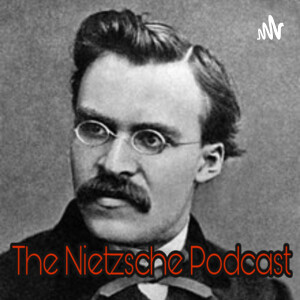
In this episode, I attempt to sum up the relevance of Nietzsche's political insights to the modern day, insofar as his challenge to our values becomes an entrypoint for us to begin the work of revaluating our values. In this piece, I argue that Nietzsche's goal for his readership is for them to find freedom in the unity of their beliefs and actions, and acceptance of humanity and the natural world for what they are rather than what we'd like them to be. Nietzsche invites us to a trusting acceptance of all that is necessary in the world, such that we may not live with the burden of having to morally condemn mankind, nor the human condition. He stands forever with the realism of Thucydides against Plato. Whether accept Nietzsche's prescriptive statements or not is irrelevant to whether we have taken seriously his contentions in the realm of values, and whether we can discover any motivating principles for humanity outside of the will to power. Nietzsche's challenge to us spurs us to consider what consequences such a shift in values might entail. At the end, we return to some of the concepts from the very beginning of the podcast, and examine how Nietzsche's view of politics and history is another manifestation of this same 'world acceptance' (or, 'amor fati') that is demanded by the abolition of the true world. Or, how Nietzsche characterizes his free spirits as 'tempters and attempters', those who experiment with the strange, wicked, and questionable questions. This is the path he lays out for the philosophers of the future, and as we are now in the time when the crisis of nihilism seems to be coming to a head, I assert that we ourselves are the philosophers he was speaking to. However you answer these questions of value, Nietzsche demands that we follow our own path, and adopt only those truths to which we have a right. The philosophers of the future will therefore be accustomed to solitude, and to a sense of distance from his fellow men. We are the types who enjoy "wandering in forbidden country", which is the way Nietzsche defines his understanding of philosophy in Ecce Homo. Every philosopher who takes it on themselves to be a creator and self-legislator is already their own revaluation of values. The time is noon.
Thank you to everyone for supporting the podcast! Here's to a wonderful season three! A very special thank you to all of my patrons. I wish to express the deepest love and gratitude to you, and my delight that so many have connected in such a deep way with the podcast. I can't wait to explore so many fascinating topics in the future with all of you!
Episode art - A Futurescape by Robert McCall (1981)
view more
More Episodes
The Gay Science #7 (II.76-II.83)
 2024-11-07
2024-11-07
 2024-11-07
2024-11-07
105: Arthur Machen - The Great God Pan
 2024-10-29
2024-10-29
 2024-10-29
2024-10-29
The Gay Science #6 (II.57-75)
 2024-10-22
2024-10-22
 2024-10-22
2024-10-22
104: Donna Tartt - The Secret History
 2024-10-08
2024-10-08
 2024-10-08
2024-10-08
103: Euripedes - The Bacchae
 2024-10-01
2024-10-01
 2024-10-01
2024-10-01
101: Aeschylus - The Oresteia
 2024-09-17
2024-09-17
 2024-09-17
2024-09-17
100: Peter Sloterdijk - Nietzsche Apostle
 2024-09-10
2024-09-10
 2024-09-10
2024-09-10
99: Carl Jung - The Undiscovered Self
 2024-09-03
2024-09-03
 2024-09-03
2024-09-03
98: Yukio Mishima - Sun & Steel
 2024-08-27
2024-08-27
 2024-08-27
2024-08-27
The Gay Science #5 (I.45 - I.56)
 2024-08-06
2024-08-06
 2024-08-06
2024-08-06
The Gay Science #4 (I.30 -I.44)
 2024-07-30
2024-07-30
 2024-07-30
2024-07-30
The Gay Science #3 (I.21 - I.29)
 2024-07-23
2024-07-23
 2024-07-23
2024-07-23
The Gay Science #2 (I.10 - I.20)
 2024-07-16
2024-07-16
 2024-07-16
2024-07-16
The Gay Science #1 (Preface, I.1 - I.9)
 2024-07-09
2024-07-09
 2024-07-09
2024-07-09
Q&A #10
 2024-07-02
2024-07-02
 2024-07-02
2024-07-02
Wandering Above A Sea of Fog #3
 2024-06-18
2024-06-18
 2024-06-18
2024-06-18
96: Nietzsche as Educator
 2024-06-11
2024-06-11
 2024-06-11
2024-06-11
012345678910111213141516171819
Create your
podcast in
minutes
- Full-featured podcast site
- Unlimited storage and bandwidth
- Comprehensive podcast stats
- Distribute to Apple Podcasts, Spotify, and more
- Make money with your podcast
It is Free
- Privacy Policy
- Cookie Policy
- Terms of Use
- Consent Preferences
- Copyright © 2015-2024 Podbean.com






